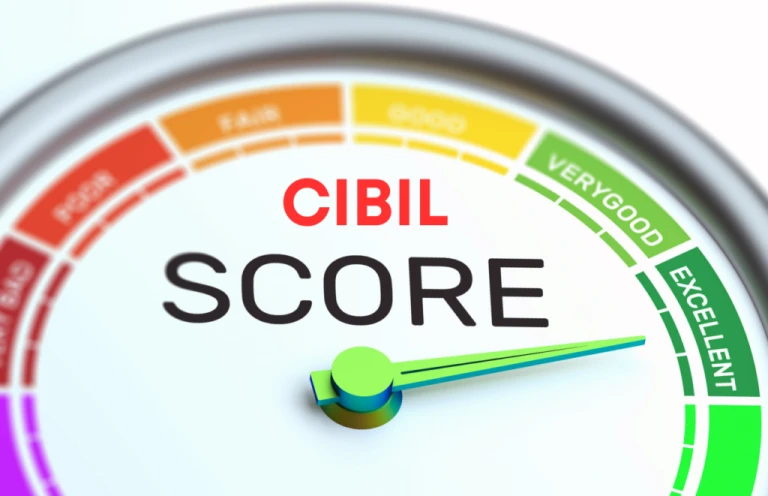CIBIL Score – Everything you need to know

Are you planning to apply for a loan anytime soon? If so, then it’s crucial that you understand the significance of your CIBIL score. In today’s world, where every financial transaction is monitored and recorded, having a good credit score can make or break your chances of securing a loan. But what exactly is CIBIL score? How does it affect your loan application process? And most importantly, how can you improve it? Read on to find out everything you need to know about CIBIL score and its importance in securing loans!
What is CIBIL?
CIBIL, which stands for Credit Bureau Information (India) Limited, is among the four significant credit score information companies authorized by the Reserve Bank of India. Equifax, Experian, and CFI Highmark are the other three companies. However, CIBIL holds the highest popularity as a credit score provider in India, managing credit files for millions of individuals and businesses. In 2000, CIBIL India formed a partnership with the US-based TransUnion and is currently recognized as TransUnion CIBIL.
What is CIBIL Score?
The credit history of an individual is represented by a three-digit number ranging from 300 to 900, this number is known as CIBIL Score. A higher score, such as 900 or close to it, increases the likelihood of loan applications being approved.
Why is CIBIL Score Important?
Here are some reasons why the CIBIL score is considered important:
- Loan Approvals
- Interest Rates
- Credit Limit and Terms
- Quicker Loan Processing
- Establishing Credit History
- Financial Trustworthiness
Loan Approvals
When someone applies for a loan or credit card, lenders such as banks and financial institutions use the CIBIL score to determine that person’s creditworthiness. The likelihood of a loan being approved rises with a higher CIBIL score, which also indicates a lower risk of default.
Interest Rates
Lenders’ interest rates may be influenced favourably by a strong CIBIL score. Higher scorers are more likely to be approved for loans with lower interest rates, which will ultimately result in savings for them. A lower CIBIL score, on the other hand, might lead to higher interest rates or even loan rejection.
Credit Limit and Terms
When deciding on the credit limit for credit cards or the largest loan amount they are willing to offer, lenders also take into account the CIBIL score. A higher score might result in a bigger credit limit and better terms, giving people more financial freedom.
Quicker Loan Processing
The approval of loans is accelerated by a high CIBIL score. Based on the applicant’s score, lenders can quickly assess their creditworthiness, facilitating quicker processing and funding disbursement.
Establishing Credit History
A person’s credit history, which includes elements like repayment patterns, outstanding debts, and credit utilisation, has an impact on their CIBIL score. Responsible credit behaviour, such as timely repayment and reasonable credit utilisation restrictions, are necessary to maintain a high CIBIL score.
Financial Trustworthiness
A person’s financial trustworthiness can be determined by their CIBIL score. A high score demonstrates sound money management and dependability in repaying debt. When applying for rental agreements, insurance policies, or other financial transactions where trustworthiness is a consideration, this can be advantageous.
Although the CIBIL score is popular in India, lenders may also take into account credit scores and reports from other credit bureaus, including Experian, Equifax, and CRIF High Mark. To increase your borrowing options, it’s crucial to maintain a high credit score across all credit bureaus.

How to improve your CIBIL Score?
Consistent financial discipline and responsible credit management are prerequisites for raising your CIBIL score. You can follow these steps to raise your Score:
- Pay Your Bills on Time
- Reduce Credit Utilization
- Maintain a Healthy Credit Mix
- Keep Old Credit Accounts Open
- Limit Credit Applications
- Keep an eye on Joint Accounts Guarantorships
- Maintain a Stable Financial Profile
Also read: Debunking Common Credit Card Myths
Pay Your Bills On Time
It’s essential to pay all of your outstanding debts, including credit card bills, loan installments, and other bills, on time. Your credit score is negatively impacted by late payments. To ensure that you never forget a due date, set up reminders or automatic payments.
Reduce Credit Utilisation
Keep your overall credit utilization ratio and credit card balances low. Utilize as little of your credit limit as possible, ideally under 30%. High credit utilization may be viewed as a risk by lenders because it suggests a dependence on credit.
Maintain a Healthy Credit Mix
Having a variety of credit, including loans, mortgages, and credit cards, can help your credit score. It demonstrates your capacity to responsibly handle various credit options. However, refrain from applying for additional credit or opening multiple accounts at once.
Keep Old Credit Accounts Open
The length of your credit history is a crucial consideration. Your overall credit history will be reduced if you close old credit accounts, which could lower your score. Keep those accounts open instead, especially if they have a history of timely payments.
Limit Credit Applications
Additionally, it is important to refrain from making numerous credit card or loan requests quickly as each application triggers a “hard inquiry” on your credit report, which can temporarily lower your score. Be selective and only request credit when it is truly necessary.
Keep an eye on joint accounts and guarantorships
Exercise caution when dealing with joint accounts or acting as a guarantor for someone, as these situations can have a significant impact on your credit score. Your credit score may also be impacted by late payments or defaults on the part of the other party. Maintain regular account status checks and make sure payments are made on time.
Maintain a Stable Financial Profile
Furthermore, maintaining a stable employment situation and home address can effectively boost your credit score. Lenders, therefore, tend to view individuals with a steady income and long-term residency as more reliable.
Keep in mind that raising your score requires persistence and time. It’s a slow process that necessitates persistent financial restraint. Following these instructions and using responsible credit management techniques will help you gradually build your creditworthiness and raise your CIBIL score.
Also read: Should you invest in Corporate FDs
The Bottom line
In conclusion, the CIBIL score is crucial to understanding the Indian financial system. It acts as a gauge of a person’s creditworthiness, affecting things like credit limits, interest rates, and overall financial opportunities. People can improve their borrowing prospects and lay a strong financial foundation by maintaining a good score through prompt payments, responsible credit usage, and diligent credit management. Moreover, it is important to keep in mind that a high score is not achieved overnight but is earned over time through consistent effort and sound money management. Due to the potential for a better financial future, it is important to understand and raise your CIBIL score.
Follow us on Instagram.









